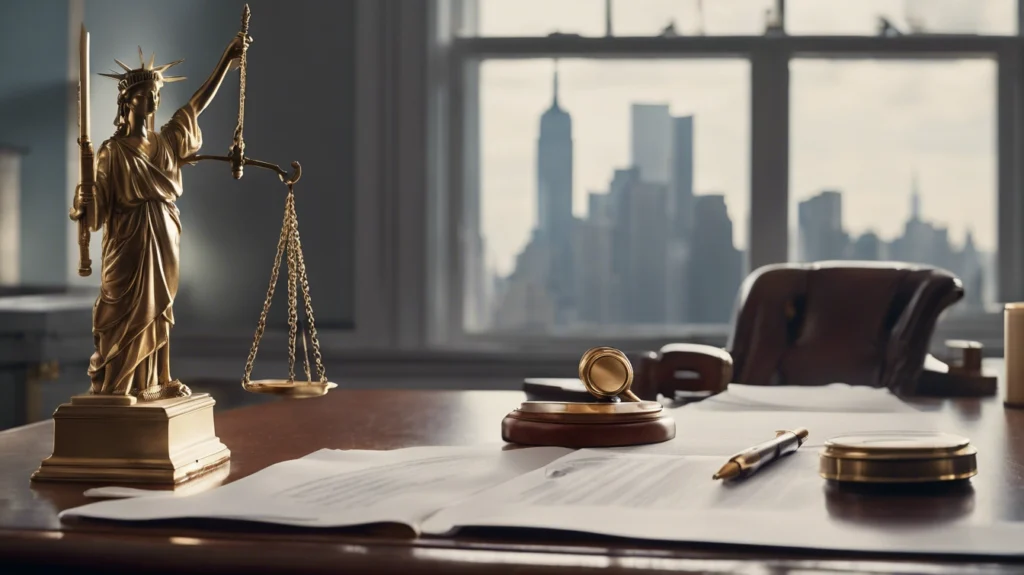Understanding the Importance of a Legal Will in New York
When it comes to estate planning, creating a legal will is one of the most critical steps you can take to ensure your assets are distributed according to your wishes after your death. A legal will is a document that outlines your intentions regarding how your property and other assets should be handled upon your passing. In New York, specific laws govern the creation of a will, and it is essential to understand these legal requirements to avoid potential disputes or the involvement of probate courts in distributing your estate.
What is a Legal Will?
A legal will is a formal document that specifies how you want your assets, including real estate, personal property, and financial accounts, to be distributed after your death. It also allows you to name an executor who will oversee the administration of your estate and ensure that your instructions are carried out. In addition to asset distribution, a will can include provisions for appointing guardians for minor children, which is particularly important for parents with young families.
Key Requirements for a Valid Will in New York
New York has specific requirements that must be met for a will to be considered legally valid. These requirements include:
- Age and Capacity: The person making the will (the testator) must be at least 18 years old and of sound mind, meaning they understand the implications of creating the will and the assets they own.
- Written Document: The will must be in writing. While some states allow for oral or handwritten wills, New York requires a formal written document that clearly outlines the testator’s wishes.
- Signature: The testator must sign the will in the presence of at least two witnesses. If the testator is unable to sign the will personally due to a physical disability, they can direct someone else to sign on their behalf, but this must be done in their presence.
- Witnesses: Two witnesses must be present at the time the testator signs the will. The witnesses must also sign the will, confirming that they observed the testator’s signature and that the testator appeared to be of sound mind.
If these requirements are not met, the will may be considered invalid, and the estate could be distributed according to New York’s intestacy laws, which apply when someone dies without a valid will.
Why Do You Need a Will in New York?
Having a legal will is essential for several reasons. It clarifies and controls your assets, ensuring they are distributed according to your wishes rather than state law. Here are some key benefits of having a will:
1. Control Over Asset Distribution
One of the primary reasons for creating a will is to control how your assets are distributed. Without a will, New York’s intestacy laws will determine who receives your property, which may not align with your wishes. For example, if you are married with children, intestacy laws dictate that your spouse will receive the first $50,000 of your estate, with the remainder being split between your spouse and children. A will allow you to customize the distribution of your assets to reflect your best intentions.
2. Avoiding Family Disputes
Creating a clear, legally binding will can help avoid family disputes after your death. Without a will, disagreements can arise among family members over who is entitled to certain assets, potentially leading to legal battles. By specifying your wishes in a will, you reduce the likelihood of conflict and ensure your estate is distributed smoothly.
3. Appointing Guardians for Minor Children
If you have minor children, a will allows you to appoint a guardian to care for them in the event of your death. This is one of the most critical functions of a will for parents, as it provides peace of mind knowing that your children will be cared for by someone you trust. Without a will, the court will appoint a guardian based on assessing the child’s best interests, which may not align with your preferences.
4. Designating an Executor
An executor is responsible for administering your estate, ensuring that your assets are distributed according to your will, and paying any outstanding debts or taxes. You can select someone you trust to handle these important tasks by naming an executor in your will. If you do not designate an executor, the court will appoint one who may not be someone you would have chosen.
5. Reducing Probate Costs and Delays
While having a will does not eliminate the need for probate, it can simplify the process and reduce associated costs and delays. The probate court will still need to validate the will and oversee the distribution of assets, but a well-drafted will can streamline this process, minimizing the time and expense involved.
Common Mistakes to Avoid When Creating a Will
Although creating a will is essential, ensuring that the document is properly drafted is crucial to avoid issues down the line. Some common mistakes to avoid include:
1. Failing to Update the Will
Your will should reflect your current life circumstances. If you experience significant life changes, such as marriage, divorce, the birth of a child, or the acquisition of new assets, you should update your will to account for these changes. Failing to do so could result in unintended outcomes, such as leaving assets to an ex-spouse or excluding a new child.
2. Not Naming a Contingent Beneficiary
When naming beneficiaries in your will, it is important to include contingent beneficiaries. A contingent beneficiary will receive the asset if the primary beneficiary is unable or unwilling to accept it. Without a contingent beneficiary, the asset may go through probate or be distributed according to state law.
3. DIY Wills
While DIY will kits are available online, they often do not account for the complexities of New York estate law. A poorly drafted will lead to disputes, delays, and increased costs. It is always advisable to work with an experienced estate planning attorney who can ensure that your will meets all legal requirements and accurately reflects your wishes.
Consulting with an Estate Planning Attorney
Drafting a will is critical in protecting your assets and ensuring that your loved ones are cared for after your death. At Morgan Legal Group, we specialize in estate planning, helping individuals and families in New York create wills that are legally sound and tailored to their specific needs. Our experienced attorneys will guide you through the process and help you avoid common pitfalls, ensuring your estate plan is as effective as possible.
Contact us today to schedule a consultation and begin the process of creating or updating your legal will. By working with a knowledgeable attorney, you can have peace of mind knowing that your estate will be managed according to your wishes.









